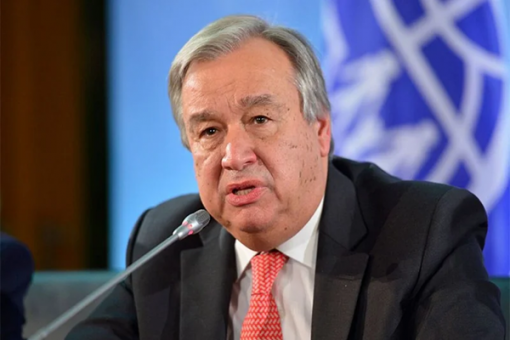
United Nations — UN Secretary-General António Guterres has issued a stark warning to world powers following a series of U.S. airstrikes on Iranian nuclear facilities, declaring that the actions have significantly damaged global stability and pushed the Middle East to the brink of a broader war.
Speaking at an emergency meeting of the UN Security Council on Sunday, Guterres condemned the overnight U.S. strikes, which were launched in support of Israel’s ongoing military campaign. The offensive targeted three key Iranian uranium enrichment facilities, further inflaming tensions after 10 consecutive days of Israeli-led airstrikes against Iran’s nuclear infrastructure.
“These attacks not only raise the risk of a full-scale regional conflict but have done serious damage to the international order,” Guterres said. “We now risk descending into a rathole of retaliation after retaliation.”
Calling for an immediate ceasefire, Guterres stressed that “diplomacy must prevail,” and urged all parties—particularly the United States, Israel, and Iran—to step back from the brink and resume negotiations over Iran’s nuclear programme.
“There is a clear choice before us,” he told the Council. “One path leads to a wider war, deeper human suffering, and the erosion of the global rules-based system. The other leads to de-escalation, diplomacy, and dialogue.”
The U.S. military intervention marks a major escalation in the crisis, as fears of a regional war grow. Iran has repeatedly denied allegations of seeking nuclear weapons, insisting its nuclear activities are for peaceful purposes only. However, its parliament has now thrown its weight behind a potential closure of the strategic Strait of Hormuz — a move that could have severe implications for global trade and energy supplies.
UN Assistant Secretary-General for Political Affairs Miroslav Jenča also addressed the Council, calling the situation “a dangerous moment” for international peace and security. He warned that there is “no military solution” to the crisis, and that further instability could engulf the entire region.
“Most of the 430 people killed in Iran so far have been civilians,” Jenča noted, citing ongoing missile exchanges that have also left 25 dead and over 1,300 injured in Israel. He expressed concern over the role of non-state actors, such as Yemen’s Houthi rebels, whose retaliation could further widen the conflict.
Jenča urged all nations to act in line with international law and uphold the principles of the UN Charter, warning, “The world will not be spared from the ramifications of this dangerous conflict.”
As calls for restraint grow louder, the international community faces a defining moment: escalate further or return to the table in pursuit of peace.
Comments